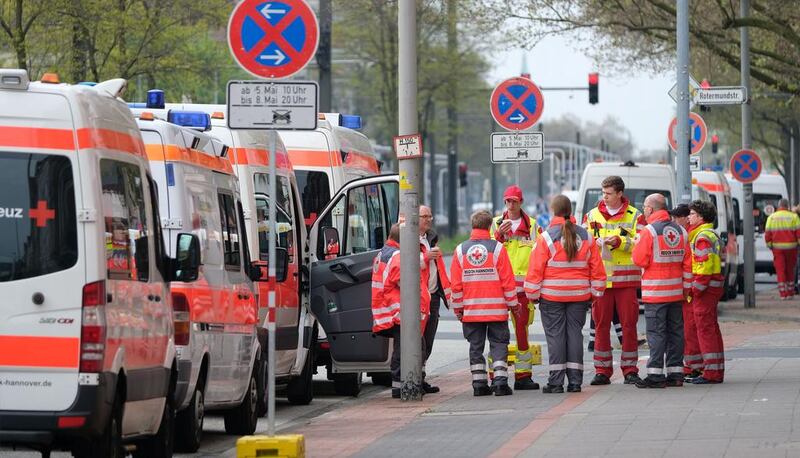BERLIN // German police evacuated some 50,000 people from the northern city of Hanover on Sunday in one of the largest post-war operations to defuse Second World War-era bombs.
Residents in a densely populated part of the city were ordered to leave their homes for the operation, which had been planned since mid-April, to extract recently discovered unexploded bombs.
Authorities had expected to remove as many as five bombs but as the day developed it emerged that there were fewer.
By mid-afternoon, experts had extracted three British bombs -- two of which were defused successfully. The third bomb will require special equipment to be made safe.
At two other sites, only scrap was found.
Seven retirement and nursing homes were affected and some rail traffic through the city was disrupted for the operation, which was expected to last all day.
Local authorities arranged sports, cultural and leisure activities, including museum visits and film screenings, to occupy residents affected by the evacuation.
More than 70 years after the end of the war, unexploded bombs are regularly found buried on German land, legacies of the intense bombing campaigns by the Allied forces against Nazi Germany.
The biggest such evacuation took place last Christmas, when an unexploded British bomb forced 54,000 people out of their homes in the southern city of Augsburg.
* Agence France-Presse





